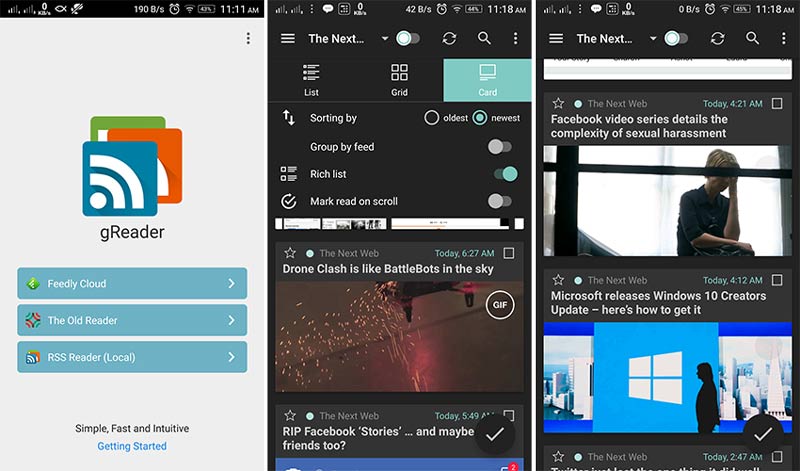
I firmly believe that the Internet and its philosophy have been maximized in RSS.
RSS or Really Simple Syndication is (or was in the past, depending on your point of view) a tool that combines almost all online resources into one feed. You go to the site, if you like it, then add it RSS to your favorite reader - and from that moment you instantly receive notifications about any new content. As simple as that.
RSS flourished during the Web 2.0 era (circa 1999-2010), when the driving force behind many innovations was complete freedom to do anything with information from the Internet. Of course, all of this happened before social media began to evolve in its current form, and most of these concepts were isolated in their closed social feeds.
Ever since social media took over the internet, if you find something on the internet and want to follow a source, you simply tweet or subscribe to YouTube. This is a great idea - until you are happy with the design of this site or the algorithm decides that you do not need to see some content from your subscription often (fatherly curation of your feed).
I said before that social networks in general are not interesting to me, but only recently decided to really look for alternatives - the best way to interact with the Internet. And I found the answer in the RSS. It is a pleasure to see the sources the way I wanted - plus flexibility, the ability to change the reader if desired, and the complete absence of advertising. It was hard not to fall in love with RSS.
But it wasn't until I started working from home and completely gone online that I really realized how important RSS is to a normal digital life. By selecting in the feed only specific sites, blogs and authors that are really interesting to me, I have effectively eliminated the negative consequences of social networks and excessive use of the Internet in my life.
, , . , , «». , — . 5 — , , ...
Another use case that I was surprised to discover is collaborative project management. A problem that has been repeatedly complained about by those working from home: You are overwhelmed by the ubiquitous, constant ringing of notifications as countless chat and collaboration apps constantly battle for your attention with new questions, comments, and discussions already open in the browser. For me, RSS solved the problem. Instead of checking every 10 minutes to see if there are any new tasks in the project, or haunting a colleague asking if he has finished this function, I can simply track everything using RSS. If something important comes up, RSS will deliver it to me immediately.
As I said before, some people feel that RSS has faded into the background as content is increasingly isolated within closed social platforms. However, on many sites, RSS is still readily available, for example:
- Reddit still supports RSS by appending
/.rss
to the end of the URL.
- GitHub allows you to add an activity feed for the accounts / organizations you follow by clicking on the feed icon at the bottom of your account page.
In the code of the page with commits of any project, there is a link to a feed of the following type:
<link href="https://github.com/cloudera/flume/commits/master.atom" rel="alternate" title="Recent Commits to flume:master" type="application/atom+xml">
- YouTube also has RSS support: just paste the channel ID (a series of numbers and symbols from the URL on the channel's main page) into the following address:
www.youtube.com/feeds/videos.xml?channel_id=CHANNEL_ID
Receive only the content I want and only when I want to, switch between readers at my discretion, and all this without ads? For me, no other service compares to the flexibility, reliability, and overall ease of use that RSS offers.
Its golden age may be over, but RSS still feels quite energizing with services like Feedly and Newsboat (I recommend), as well as many mobile apps on any platform to enjoy the Internet at its best.